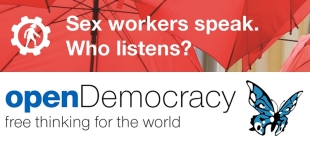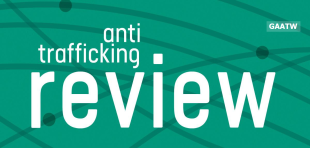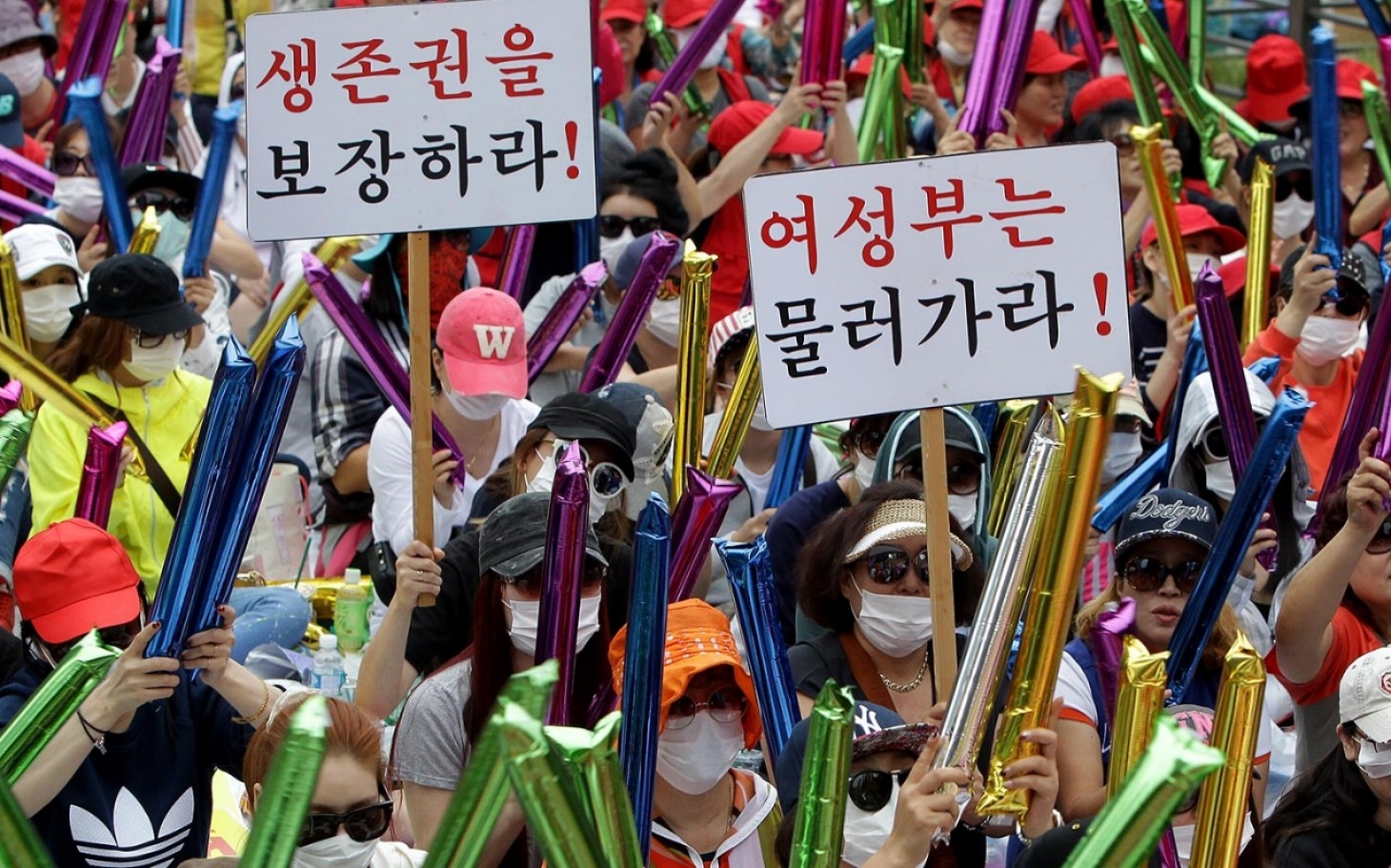About
Matthias Lehmann ››
Matthias Lehmann is a German researcher and a member of the International Committee on the Rights of Sex Workers in Europe (ICRSE) and the co-founder of the SWAT project (Sex Workers + Allies Translate, Edit + Design), together with Katherine Koster (then SWOP-USA, now NSWP). He lives in South Korea after research periods in Thailand, Korea, Germany and the UK. He graduated with a B.A. in Korean Studies at the School of Oriental and African Studies (SOAS, University of London) and an M.A. in International Relations at the Graduate Institute of Peace Studies (GIP, Kyung Hee University).
Through the research for his graduate thesis that dealt with human trafficking prevention in Thailand he became aware of the collateral damage caused by anti-trafficking and prostitution legislation, in particular where sex workers and migrants are concerned. With this research project, Mr Lehmann aimed to add to the knowledge about the experiences of sex workers in South Korea.
Research Team ››
Ms Haeryung Choi is a Korean who works as a researcher in the field of international development. Ms Choi was responsible for the transcription and translation of recorded interviews and other documents. Ms Hanna Park is a Korean who is the head of the dental department at a hospital and volunteers her off time for humanitarian causes. Ms Park functioned as Mr Lehmann’s interpreter. [Anonymous], a Korean who is interested in labour policies, was responsible for extensive translation tasks.
Research Background ››
In his graduate thesis, titled “Transnationalising a Thai Grassroots NGO: A Comprehensive Approach to Human Trafficking Prevention”, Matthias Lehmann assessed anti-trafficking measures and the intentions of different civil society groups engaged in the global anti-trafficking agenda. Triggered by his research findings and by sex workers’ protests in Seoul, he developed the plan to conduct primary research to examine the impact of Korea’s Anti-Sex Trade Law on sex workers’ human rights.
This subject is of particular importance in light of the failure of many governments to acknowledge the rights of sex workers. Sex workers that are not victims of human trafficking are often discriminated as undeserving of the protection that others enjoy. Therefore, sex workers are now organising on a global scale to raise awareness about the grave human rights violations inflicted on them, while also offering to assist sensible anti-trafficking efforts.
Anti-trafficking measures are increasingly conflated with campaigns to eradicate the sex industry, resulting in uneven policies that underserve the majority of trafficking victims and drive the sex industry further underground, thus cutting off sex workers from their support networks. The decriminalisation or legalisation of sex work is hotly contested. This research aims to add to the knowledge required for future decision-making processes.
Publications ››
Research Project Korea planned to produce a graphic novel based on experiences of sex workers in South Korea, a project that was met with support by Korean sex workers that were interviewed. Unfortunately, the graphic novel project had to be shelved, since none of the graphic artists that preliminary talks were held with turned out to be suitable, or they were unable to accommodate the time constraints of the sex workers participating in the project.
Instead, a photo series by Yeoni Kim and a letter by Hyeri Lee as well as an interview with her were published to provide readers with first-hand insights into the lives and work of sex workers in South Korea. The research findings were presented at a symposium at Humboldt University of Berlin and at another symposium at the Urania Berlin. In 2016, Matthias Lehmann co-authored a piece about South Korea for the book “Sex workers speak. Who listens?”, funded by the European Cooperation for Science and Technology (COST).
Apart from this blog, Research Project also published (and occasionally continues to publish) news and links related to sex work via Facebook and Twitter, as well as videos on Vimeo and audio clips on Mixcloud.
Funding ››
Research Project Korea was an independent research project, funded exclusively by Mr Lehmann’s own funds and a limited amount of private donations. Donations were received following two fundraisers before the start of the project and before Mr Lehmann’s participation at the Sex Workers’ Freedom Festival in Kolkata, India, official hub of the XIX International AIDS Conference in 2012. For the latter, awareness was raised for the fundraiser of Korean sex workers who participated in the festival. An additional, smaller fundraiser was launched in 2013 to to fund an important translation, available here.
The research period in South Korea lasted 18 months. Donations were used to cover transport costs, visa fees, expenses arising from interviews (venue hire, food & beverages), as well as phone and internet charges. Interviewees were not paid for participating in this research project and were informed of this prior to meeting with us. Before each interview, participants received a leaflet that included information about the project’s name, the objective and utilisation of the interviews, the team members’ names and backgrounds, and the interview method, as well as about the rights of the interviewee during and after the interview.
What Korean sex workers said about this project ››
The following are two statements by Korean sex worker activists who kindly participated in this project and explicitly gave consent to their names and messages being published on this blog.
(Korean original) Matthias Lehmann 은 제가 그동안 운동을 하며 만났던 한국의 기자나 연구자와는 달리, 우리의 인권과 노동권을 제일 먼저 생각하는 사람이었습니다. 그는 단 한번도 성노동자를 자신을 위해 ‘소비’ 하지 않았습니다. 그는 인터뷰 전, 인터뷰에 대한 개괄적인 설명과 함께, 이 인터뷰는 나의 사생활을 지켜줄 것이며, 내가 말한 것을 왜곡하지 않을 것이라는 약속을 종이 한 장 빼곡히 적어 주었습니다.
(English translation) Matthias Lehmann had different viewpoints on sex work compared to the Korean journalists or researchers that I encountered during my years of activism. He considered the human rights and workers’ rights of sex workers as priorities. He has never used sex workers as a tool to promote his research or himself. Before the interview took place, he gave me a general description of the interview, and a sheet full of rules for the interview that would protect my privacy and avoid distortions of what I would say.
Yeoni Kim, Sex Workers’ Rights Activist, Seoul
(Korean original) 마티아스는 사전에 인터뷰에 대한 충분한 설명을 해주었고, 설문지에 본인과 제가 함께 서명하여 그 내용이나 단서조항(일체의 비밀보장 등의 내용)을 언제든지 확인할 수 있도록 그와 내가 각각 한부씩 나누어가졌습니다 인터뷰는 제 직업 및 일의 장단점, 한국의 성노동 상황, 성매매 특별법 이후의 취약점, 그리고 일에 관한 다방면에서의 접근 및 조사 (연구) 였습니다. 일단 편견이 없이 객관적이면서도 예리한 질문들에 간만에 즐거운인터뷰 시간을 가졌습니다. 인터뷰 내내 그는 유쾌했고 정중했으며 한시도 놓치지 않고 경청하는 자세를 보였습니다.
(English translation) Before the interview, Matthias gave me a full explanation about what his project was all about and why the interview was needed, and he gave me a form which contained information about what rights I would have during the interview, including confidentiality, anonymity etc. I was asked about the advantages and disadvantages of my work, the situations and conditions I experienced in the Korean sex industry, potential side effects since the adoption of the ‘Special Law on Prostitution’, and multiple aspects of sex work research. I was interviewed without any prejudice about my profession and I found all questions that I was asked quite sharp, objective and well thought-out. I also thoroughly enjoyed the interview because of Matthias’ polite, attentive and kind approach to listen and respond to any of my answers and questions.
Hye-ri Lee, Sex Workers’ Rights Activist, Seoul
For further information about the interview process, please read our post Behind The Scenes.









Hi! As an ex-sex worker I believe you are doing good work. Keep it up and please also highlight the situation in South Africa where sex work is still illegal. Thank you!
April 30, 2012 at 1:58 pm
Dear Thandiwe,
thank you for your kind comment and encouragement. If you haven’t done so already, please take a look at my post “Seeing is Disbelieving” and follow the link to my photo album on Facebook that includes photos from sex workers’ protests in South Africa.
Greetings from Seoul,
Matthias
April 30, 2012 at 4:11 pm